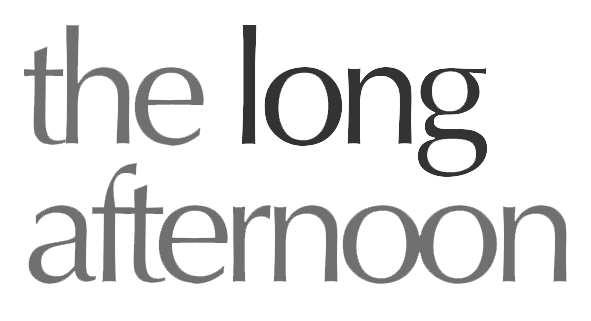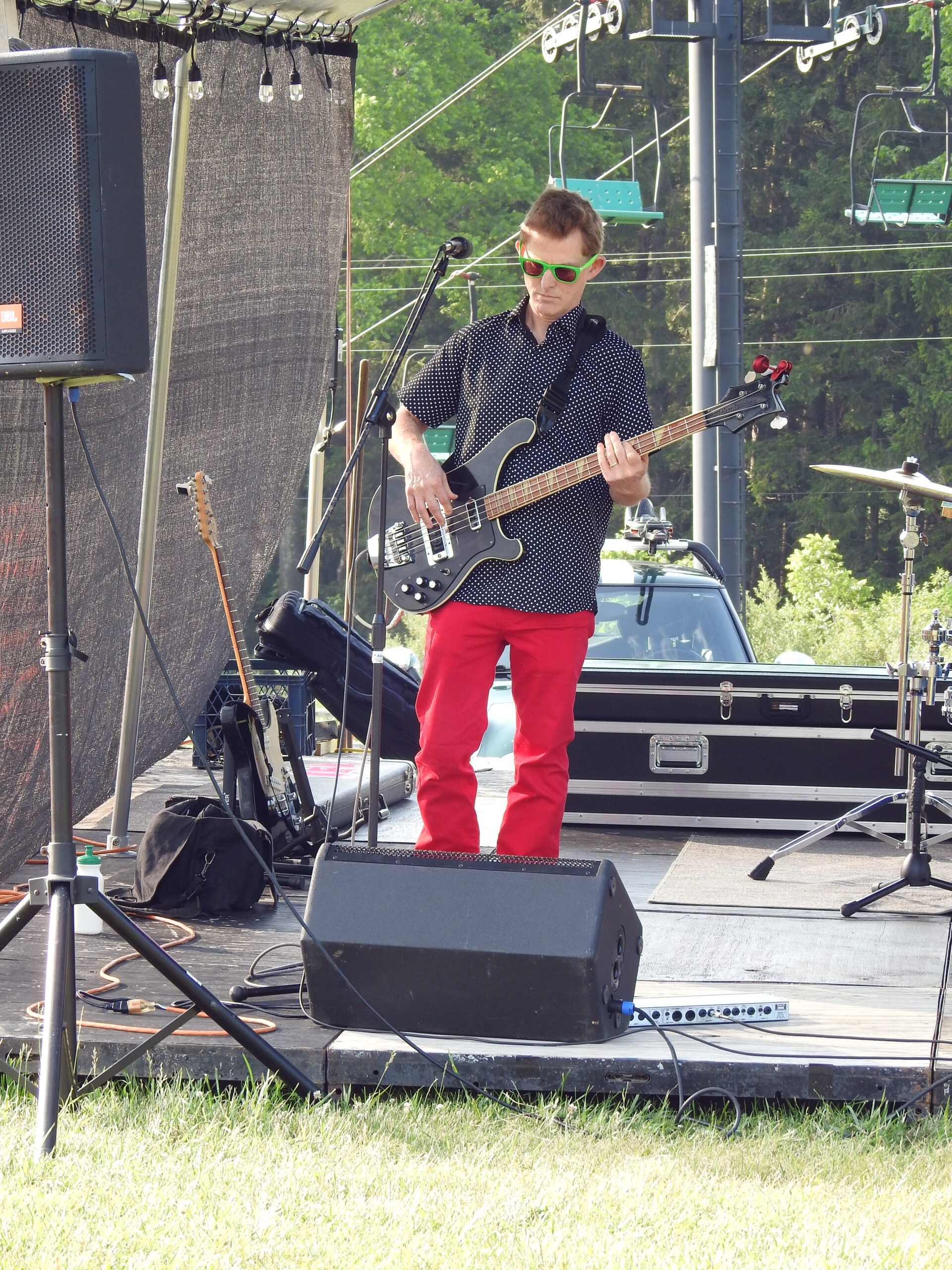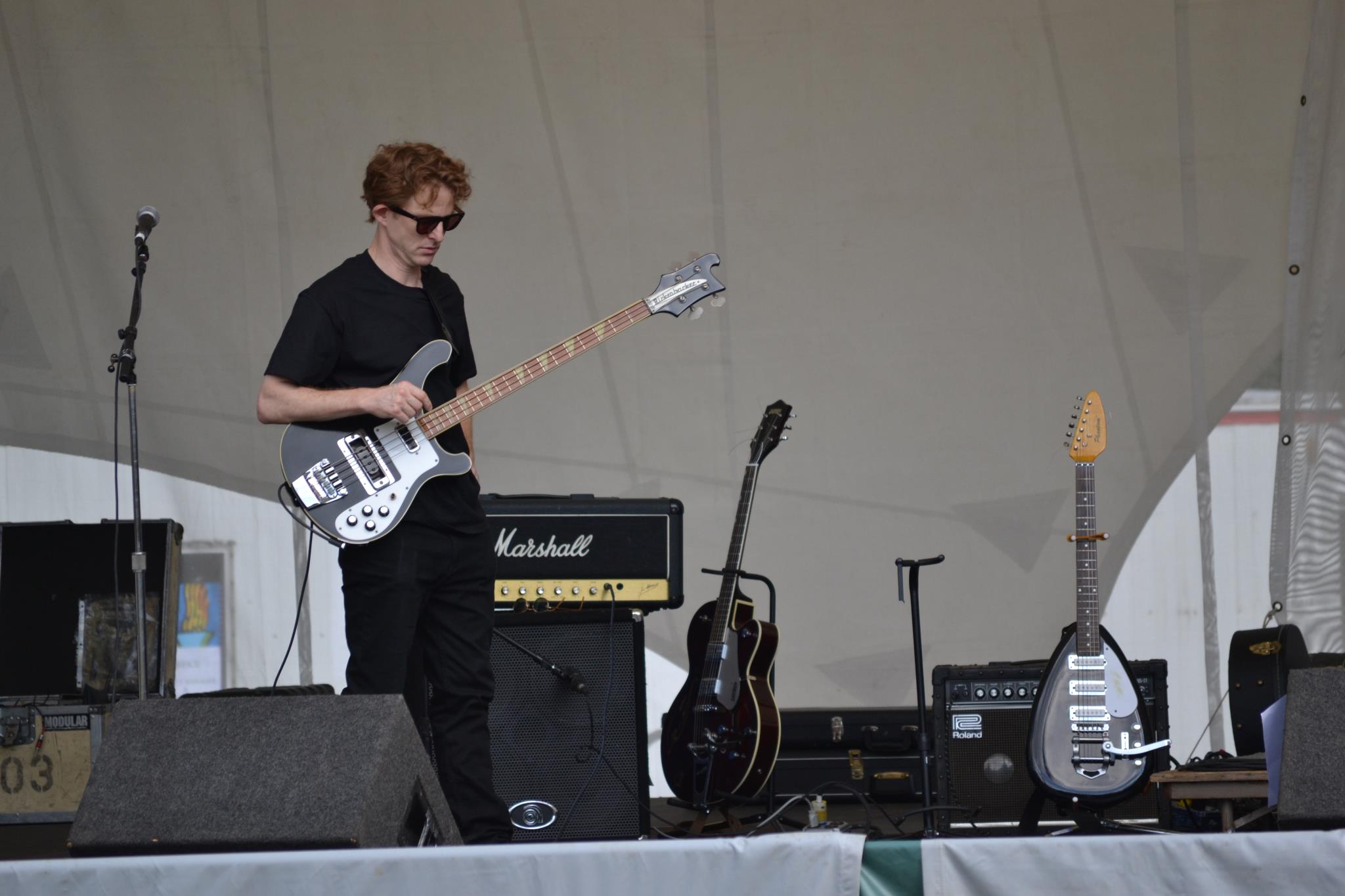Songs I Wish I’d Written: Reuters
It starts simply enough, with monomonikered bassist Lewis emitting a one-note pulse that could go anywhere. But then Bruce Gilbert’s guitar comes in, and it’s nothing like the buzzsaw churn of most other punk bands of the day. It’s light and high, with the treble jacked way, way up. It’s also not consonant with the bass pulse that still rolls along underneath. It’s like the peal of bell calling out to parishioners across the countryside to come to the church quick, or the sound of an alarm coming swiftly down the road toward you.
Then Robert Gotobed’s drums and Colin Newman’s guitar–which does have the more standard punk chugga-chugga distortion going on–join the fray, and the group comes together to work a slow, droning vibe, with Newman and Gilbert working the hell out of a simple Mel-Bay D-minor chord.
Then Newman begins singing dispassionately…declaiming, really…from a perspective we haven’t heard before, certainly not in punk, and maybe not in any other rock song, either. He’s a newscaster, bringing you the day’s events:
Our own correspondent, is sorry to tell
Of an uneasy time, that all is not well
Punks of this era weren’t typically associated with eloquence (excepting Patti Smith), but this opening couplet is a marvel of efficiency: in two brief lines, Newman establishes character and set the scene for what’s about to come. But what’s really remarkable, and what becomes clear as the song progresses, is that he’s done this in a way that makes it timeless. It’s a perfect approximation of a news report from 1977…or 1969…or 1985…or tomorrow. And that’s part of the goddamned point.
The next lines, accompanied by a chord change to A, could describe exactly what you’re going to hear the next time you turn on NPR. Or, god help you, Fox News:
On the borders there’s movement
In the hills there is trouble
Food is short, crime is double
Then we switch back from the A to the D-minor chord. As the song continues, our correspondent’s report from the war zone gets progressively more grim. Newman paints the scene with a telling brevity we’d usually associate with, oh, Hemingway, or maybe Raymond Carver:
Prices have risen since the government fell
Casualties increase as the enemy shells
The climate’s unhealthy, flies and rats thrive
And sooner or later, the end will arrive
Back to the A chord, with no vocals this time…we’re in a brief holding period, and when we return to the song’s D-minor verse, the outlook is dire:
This is your correspondent, running out of tape
Gunfire’s increasing
Looting, burning, rape.
The band cranks up the intensity a subtle couple of notches here, with Newman repeating the final word, first as a kind of chant, then a howl. Ultimately they all begin slowing down, and Lewis’ bass starts descending, taking us down and down and eventually out.
Why Reuters by Wire Works So Well
So what’s going on here? Ostensibly, it’s an end-of-the-world scenario, World War III, right? At least, that’s how I interpreted it for years. But I gradually began to see there’s a lot more going on here than that. MAYBE the conflict the correspondent is describing is a new one. But maybe not. The conflict isn’t what’s important in the song, and that’s why it’s called “Reuters” and not, oh, “My Bombed Out Neighborhood.”
This isn’t about war, at least, not exclusively. It’s about detachment.
It’s about how we’ve grown accustomed to seeing the most horrible atrocities happen to other people, always other people, and how we have that information safely mediated to us through our radios and newspapers and televisions. Even in the song, we’re completely insulated from what’s happening — the only reason we even know there’s something awful happening is because our correspondent is telling us about it.
It’s the end of the world as entertainment. And we’re all complicit.
That’s a couple of dozen more levels of punk-fueled insight than, say, “Belsen Was a Gas” delivers. And that’s why “Reuters” is just as effective—and timely—today as it was in 1977. That’s the kind of multifaceted songwriting I admire most, and that I’ve always sought to achieve in my work with The Long Afternoon.
I’ve never tried copping this song directly, but thematically it’s certainly cropped up in many of my songs, probably most directly in the series of talking-head-excuses that make up the verses in Casual Transmission:
So here I am, updating this post in 2017. I wish the post and the song were no longer relevant, but let’s face it, the song is always going to be relevant.
I used to think about this song when I heard news reports from Nicaragua and El Salvador and the Falklands and Grenada and Afghanistan in the 1980s. I thought it about while hearing reports about the warring tribes of Yugoslavia and Somalia in the 1990s. And I still think about now it when I hear reports from Iraq. And, again, Afghanistan. And Syria. And North Carolina. And central Pennsylvania.
Would that I won’t have to think about it when I’m getting the news in twenty years time, but how likely you do think it is that opening couplet won’t still hold true?
Our own correspondent is sorry to tell
Of an uneasy time, that all is not well…







Agreed!! Great song-Bob Mould wishes he wrote it too I’ll bet…